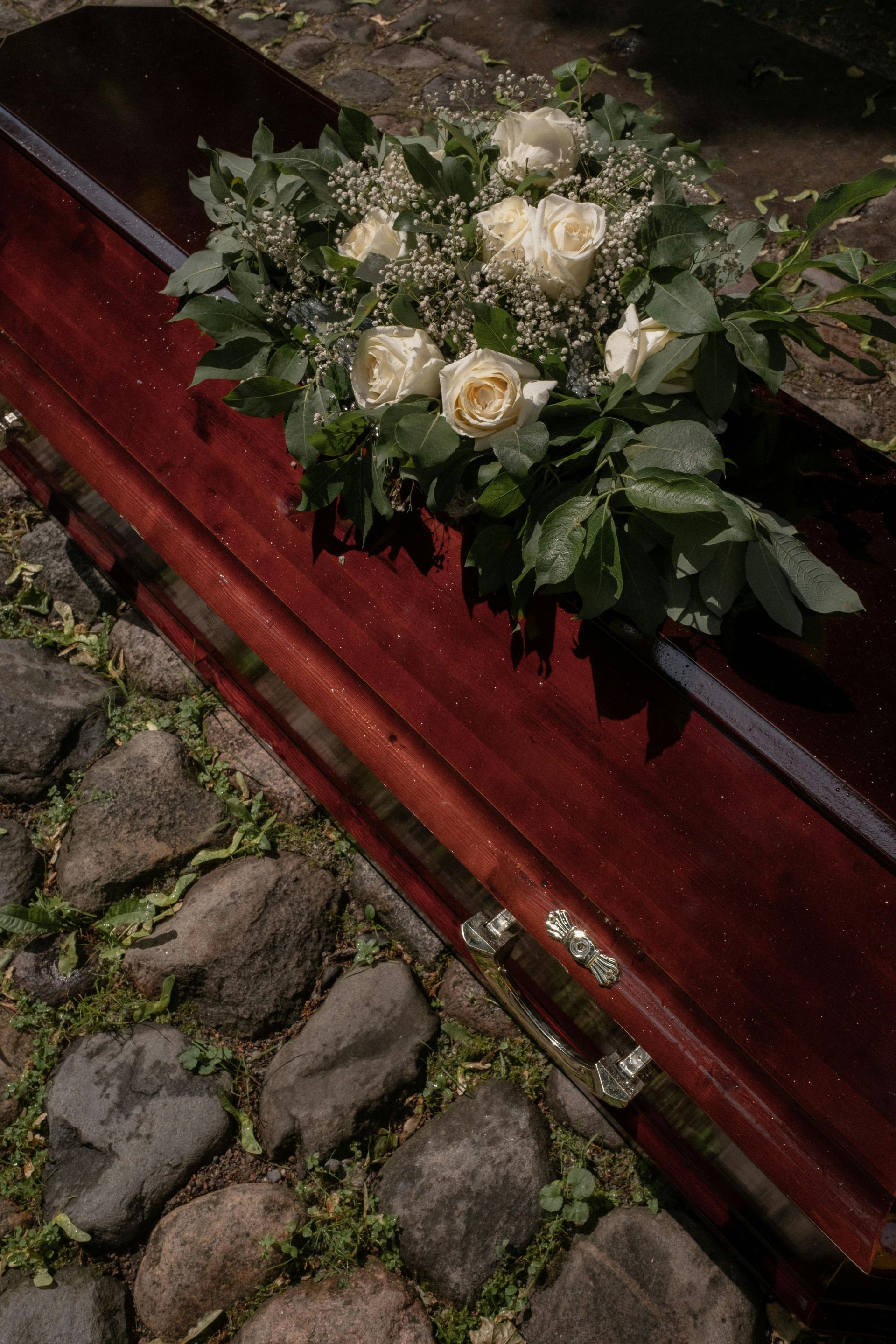Coping with Grief During Holidays and Special Occasions

The holidays and other significant events like birthdays can be especially challenging for those grieving. Traditions and celebrations that once might have been filled with joy, might now start to feel a little empty.
And, the contrast of feelings between mourning, and open celebration of these holidays can make someone feel isolated. Which is why, in this article we look at some practical tips for coping with grief during these occasions.
Firstly acknowledge how you're feeling
Grief is a natural response to loss, you are going to feel sad, that is inevitable. But it’s important to allow yourself to feel a range of emotions without feeling guilty for celebrating an occasion. Whether it's sadness, anger or even relief, all feelings are valid, and you should take the time to acknowledge how you feel.
Doing so can help you recognise and accept what has happened, and avoid becoming overwhelmed.
Keep in mind that you don’t have to suppress your grief to participate in celebrations, and you shouldn’t feel obligated to maintain a cheerful facade either. Letting yourself grieve is both healthy and essential towards healing.
Adjust Traditions
Occasions, celebrations and holidays often all revolve around tradition. And, every family and person has their own tradition and way that they celebrate occasions. But, following old routines may feel too painful after losing a loved one. Instead of trying to force yourself to keep things exactly the same, think about how you can adapt these traditions for your ‘new reality.’
Changing traditions to bring comfort
If your loved one always craved a certain food, or always decorated in a certain way for birthdays or holidays, you might pass that role to someone else. This takes the weight of off your shoulder. And, don’t worry, changing a tradition does not mean you’re forgetting your loved one.
Instead, do something new to celebrate them.
For instance, you could light their favourite candle, play their favourite songs or even cook their favourite dish. These are more subtle ways to remember your loved one without the pressure of keeping things exactly the same.
Remember that it’s okay if traditions don’t feel right to continue. Changing the way you celebrate is about finding what feels meaningful to you in the present moment, rather than getting lost in the loss and memory of your loved one.
Plan Ahead
Holidays are often busy times for everyone. So it’s helpful to plan ahead for potential challenges that you might face.
Here's our tips for planning ahead
- Reflect on what you’re comfortable participating in
- Communicate your boundaries to others before the event
- If you’d prefer, let your friends and family know whether you might prefer a smaller celebration, or even if you might need to take yourself away
Doing this relieves some pressure from having to feel 100% all of the time. Especially because grief is anything but predictable, and you may feel completely different on the day. Give yourself permission to step away from an event or gather if it feels overwhelming, and if it’s not overwhelming don’t feel like you can’t get involved and have some fun!
Ultimately, having an ‘exit plan’ for these sorts of things are a great way to alleviate anxiety. You don’t have to please everyone. Prioritising your emotional well-being is not selfish—it’s necessary for both processing and healing.
Honouring their memory
By including your loved one in the celebration or occasion, you can help ease the pain of their absence. There are a range of meaningful ways to honour a loved ones memories…
Some ideas include:
- Create a memory ornament to display: You might decorate a photograph, or a meaningful quote that reminds you of the loved one and display it during the celebration.
- A moment of silence: this can be a nice way to just take a step back from the chaos of the holiday or occasion, and remember the ones you, and other people have lost.
- Sharing memories with others: You could encourage family and friends to tell stories about your loved one during a gathering, this can help to keep them alive in spirit.
Finding a way to include the ones you’ve lost in your day can help to bring comfort, and bridge any gaps between past and present.
Don't Isolate yourself
Grieving can feel isolating, especially because while you are grieving it can feel like the rest of the world simply continues to move very quickly. Surrounding yourself with a support system of loved ones, whether that's close friends or family members is a good way to ensure you don’t end up isolating yourself.
Don’t forget that, if the person you lost was a close relative, it's likely your friends and family are experiencing the same feelings. So be sure to lean on each other during these hard times.
Even small acts of connection—like a phone call or a message exchange—can remind you that you’re not alone.
Practicing Self Care
It is very easy to get into bad habits, and that's without grieving. So, when we grieve, having continuous habits can be hard to maintain, but it's important that we do so.
Grief affects your mind and body, so making sure you're okay both physically and mentally can help to manage any additional stress of the holidays.
Start with the basics:
- Get adequate sleep
- Stay hydrated
- Partake in gentle physical activities (such as a gentle walk, or swimming).
Try something different:
- Try Journalling
- Try taking up something creative such as art, writing or even writing music.
- Practice mindfulness with activities like Yoga.
The main thing to remember is that you remain mindful of overcommitting during the holidays. It's okay to decline invitations, or even take a day out of socialising to process your grief and feelings. But, it's important that you recognise your limits, and don’t become overwhelmed to the extent that you feel the need to completely isolate yourself from the occasion.
You can experience joy without guilt
One of the most challenging aspects of grieving during festive times is experiencing moments of joy with the pain of the loss. You may find yourself laughing with family, or enjoying a tradition that you used to partake in with the lost one. You then might feel guilty as if you’re betraying your loved ones memories.
Remember that experiencing happiness doesn’t diminish your grief or your love for the person that was lost. In fact, joy and sorrow coexist with one another. It's just up to you to remind yourself that your loved one would want you to find peace and happiness.
Final thoughts
Holidays and special occasions may never feel the same after the loss of a loved one, but they can still hold meaning and moments of joy. By acknowledging your emotions, leaning on your support network, and finding ways to honour your loved one, you can navigate these challenging times with grace and compassion.
Grief is not linear, and each holiday may feel different from the last. Take things one step at a time and remember that healing is a journey, not a destination. Above all, be kind to yourself—you’re doing the best you can!
How else can we help?
Can’t find what you’re looking for?
We’re happy to answer any questions you have. Just drop us a line, or give us a call.
01902 246 040 // 81 Tempest Street, Wolverhampton, WV2 1AA
Tailored Funerals. All Rights Reserved | Privacy Policy | Terms of Business




